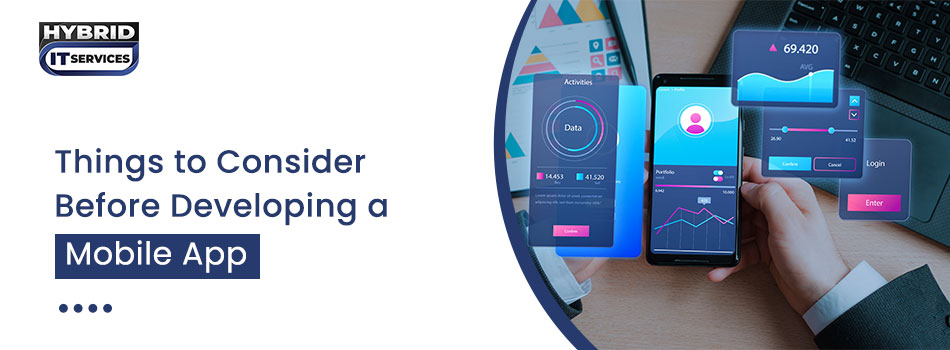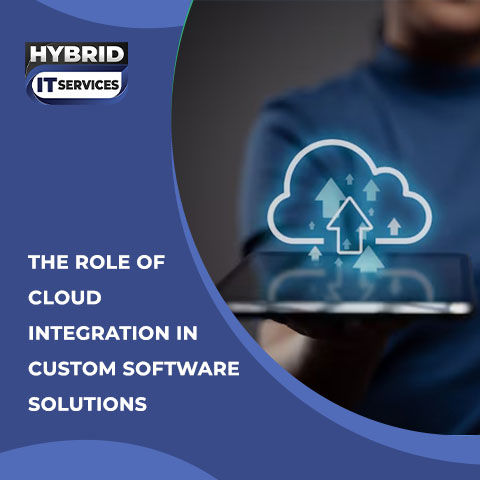The mobile app industry has experienced phenomenal growth over the past decade, transforming the way people interact with technology and access services. With millions of apps available across various platforms, the competition is fierce. Developing a mobile app requires careful planning and execution to stand out in this saturated market.
The Necessity of Strategic Planning for App Success
Success in the mobile app market is not just about having a great idea; it’s about strategic planning. From initial concept to launch, every step must be meticulously planned to ensure the app meets user needs, adheres to budget constraints, and achieves business goals.
Conduct Thorough Market Research
Research and development are foundational to app success. This phase involves understanding the market landscape, identifying what users want, and recognizing the features that competitors offer. Skipping this step can lead to developing an app that does not resonate with the target audience.
Analyzing Competitor Strategies
Understanding what competitors are doing can provide valuable insights. Analyze their strengths and weaknesses, user reviews, and market strategies. This helps in identifying opportunities for differentiation and avoiding their pitfalls.
Grasping User Requirements
User requirements are the backbone of any app. Conduct surveys, focus groups, and interviews to understand the pain points and preferences of potential users. This information is crucial for designing an app that provides real value.
Identifying Market Gaps
Market gaps are opportunities where user needs are not fully met by existing apps. Identifying these gaps can help you tailor your app to fill these voids, offering unique solutions that attract users.
You May Also Read: How Can Custom Mobile App Development Boost your Business?
Identify and Understand Your Target Audience
Knowing who your app is for is critical. Define your target demographics in terms of age, gender, location, and interests. This helps in creating a user-centric design and marketing strategy that resonates with your intended audience.
Recognizing Audience Needs
Understand the specific needs and pain points of your audience. This involves digging deeper into their daily challenges and how your app can provide solutions. Tailoring your app to address these needs increases its chances of success.
Crafting a Compelling Elevator Pitch
An elevator pitch is a brief and persuasive description of your app. It should clearly convey the app’s unique value proposition and how it benefits the user. A compelling pitch is essential for attracting investors and early adopters.
You May Also Read: How Often Should You Update Your Mobile App?
Select the Appropriate Development Platform: Hybrid, Native, or Cross-Platform
Choosing the right platform is a critical decision that affects the app’s performance, user experience, and development cost. The main options are hybrid, native, and cross-platform development.
Benefits and Drawbacks of Hybrid Apps
Hybrid apps are developed using web technologies and wrapped in a native container. They offer the advantage of lower development costs and faster time-to-market. However, they may not perform as well as native apps and can have limitations in accessing device features.
Advantages and Disadvantages of Native Apps
Native apps are developed specifically for a particular platform (iOS or Android). They offer superior performance and a better user experience but are more expensive and time-consuming to develop due to the need for separate codebases for each platform.
Pros and Cons of Cross-Platform Apps
Cross-platform apps are built using frameworks that allow a single codebase to be used across multiple platforms. They balance cost and performance, offering a good compromise between hybrid and native development. However, they may not fully leverage the unique capabilities of each platform.
Reviewing case studies of successful apps can provide insights into which platform might be best for your project. Analyze how different development approaches impacted the apps' performance, user satisfaction, and market reach.
You May Also Read: Custom Mobile App Development: The Ultimate Guide
Clarify Your App's Purpose
Clearly defining your app’s objectives is essential. Whether it’s solving a specific problem, enhancing productivity, or providing entertainment, the app’s purpose should guide its development and features.
Distinguishing Between Website and App Features
Apps and websites serve different purposes and offer different user experiences. Determine which features are best suited for your app versus your website. Apps typically offer more personalized, interactive, and offline capabilities.
Aligning App Goals with Business Strategies
Your app should support your broader business goals. Whether it’s increasing brand visibility, driving sales, or enhancing customer engagement, ensure that your app’s objectives align with your overall strategy.
Explore Monetization Options
There are several ways to monetize an app, including in-app purchases, subscriptions, freemium models, advertisements, and sponsorships. Each method has its own set of advantages and considerations.
Choose a monetization strategy that aligns with your app’s purpose and audience preferences. Consider factors like user experience, revenue potential, and market trends when making this decision.
Evaluate the Cost of App Development
Development costs vary based on factors like app complexity, platform choice, design requirements, and the development team's location. Understanding these factors helps in budgeting effectively.
Simple apps with basic features cost less than complex apps with advanced functionalities. Provide a detailed cost analysis based on your app’s complexity to plan your budget accurately.
Global Standards for Development Costs
Development costs can vary significantly by region. Offshore development can be more cost-effective, but it’s important to consider the potential trade-offs in quality and communication.
Planning for Ongoing Expenses
Budgeting for ongoing expenses is crucial. This includes regular updates, marketing efforts, and maintenance to ensure your app remains relevant and functional over time.
Choose the Right App Development Partner Like Hybrid IT Services
Selecting the right Mobile App development partner is critical to your app’s success. Consider factors like the firm’s expertise, past projects, client reviews, and their ability to understand your vision.
Evaluate the technological proficiency of potential partners by reviewing their past projects and technical capabilities. This helps ensure they can deliver a high-quality app that meets your requirements.
Ensuring Seamless Communication and Expertise
Effective communication is key to a successful partnership. Choose a firm that offers clear and consistent communication and has expertise in the relevant technology stack.
You May Also Read: Top 10 Common Mistakes to Avoid in Mobile App Development
Develop a Pre-Launch Marketing Strategy
Pre-launch marketing creates buzz and anticipation for your app. It’s essential for building an initial user base and generating early interest.
Establish a strong brand identity and develop a content strategy that highlights your app’s unique value. Use social media, blogs, and press releases to create awareness and excitement.
Partnering with Industry Influencers
Collaborating with influencers can amplify your reach and credibility. Choose influencers whose audience aligns with your target demographics to maximize impact.
Optimize for App Stores
App Store Optimization (ASO) improves your app’s visibility and attractiveness in app stores. Focus on elements like app name, description, keywords, and visuals to enhance discoverability.
Use relevant keywords to improve search rankings. High-quality visuals and clear, engaging descriptions can increase user interest and download rates.
Utilizing Reviews and Ratings
Positive reviews and high ratings are crucial for app success. Encourage satisfied users to leave reviews and address any negative feedback promptly to improve your app’s reputation.
Implement Security Measures
Data security is paramount to protect user information and build trust. Implement robust security measures to safeguard against breaches and data theft.
Develop and enforce strict security protocols, including data encryption, secure authentication, and regular security audits, to protect your app from vulnerabilities.
Stay informed about potential security threats and ensure your app is updated regularly to mitigate risks. Proactive security management is essential for maintaining user trust.
Promote Your App
Effective marketing is essential for driving downloads and user engagement. Develop a comprehensive marketing plan that leverages multiple channels to reach your audience. Utilize a mix of marketing strategies, including social media campaigns, email marketing, paid advertising, and content marketing, to promote your app effectively.
A/B testing helps optimize your marketing efforts by comparing different versions of your app’s features or promotional materials to see which performs better.
Final Thoughts
Developing a mobile app involves many critical considerations, from market research and audience understanding to platform selection and security measures. Each step requires careful planning and execution to ensure success. Strategic planning is the cornerstone of a successful app development process. By focusing on user needs, market gaps, and aligning your app with business goals, you can create a valuable and successful mobile application.






